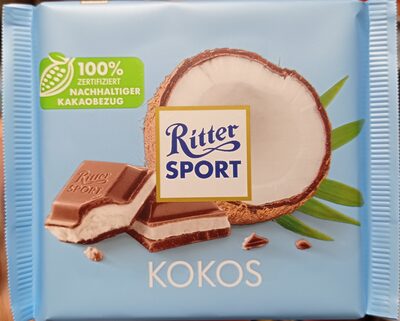
Barcode: 4000417629814
Kokos
HALAL
📝 Reason: Based on the listed ingredients (no E codes present), none match the Haram or Doubtful E-code lists provided. All ingredients originate from plant or cow’s milk sources, and there is no presence of meat, alcohol, pork, or non-Halal enzymes. From Islamic dietary standards (Qur’an 5:3, IFANCA guidelines), all are Halal unless proven otherwise by contamination or specific animal-based processing aids. No evidence of cross-contamination is found, and product does not contain any forbidden substances.
🏷️ Category: Snacks, Sweet Snacks, Cocoa And Its Products, Chocolates, Milk Chocolates, Filled Chocolates, Filled Milk Chocolates
📄 Certificates: Rainforest Alliance, Rainforest Alliance Cocoa, Vegetarisch
Ingredients:
Details
Kokos Snacks – Understanding Its Halal Status
Kokos snacks are a delicious treat loved by many, but for those who observe Halal dietary laws, it is essential to confirm their Halal status. With ingredients that focus on plant and dairy origins, let’s delve deeper into whether Kokos snacks can be considered Halal.
Halal Status Overview
The Kokos snacks are certified Halal based on the Islamic dietary standards outlined in the Qur’an (5:3), which prohibits certain foods deemed harmful or impure. After reviewing the listed ingredients carefully, we found that they do not contain any meat, alcohol, pork, or non-Halal enzymes, signifying a clear path to their Halal certification.
Ingredients Breakdown
Here is a detailed examination of the ingredients found in Kokos snacks, verifying the Halal status of each component:
- Sugar: Originating from plants, sugar is Halal unless processed with animal-derived agents, which is rare in commercial foods. For detailed information, check IFANCA.
- Palm Fat: Derived from the fruit of the oil palm tree, palm fat is considered Halal as it is of vegetarian origin. Learn more about it here.
- Cocoa Butter: A fat extracted from cocoa beans, cocoa butter is naturally Halal. For further details, visit Halal How.
- Coconut Flakes (9%): Made from dried coconut, they do not contain animal products and are Halal. For further reading, refer to Halal Haram.
- Whole Milk Powder: Made from cow’s milk, it remains Halal unless mixed with Haram substances. Read more here.
- Cocoa Mass: This ground pure cocoa bean product is plant-derived and Halal. For more, see Halal How.
- Skimmed Milk Powder: This dehydrated non-fat cow’s milk is considered Halal by default. More on this can be found here.
- Lactose: This milk sugar is primarily bovine-derived, making it Halal unless it has been contaminated. Read further at Food Chem Additives.
- Clarified Butter: Generally made from cow’s milk, this ghee is Halal unless mixed with any Haram ingredients. More information can be found here.
- Coconut Milk (0.8%): Extracted from coconuts, it is free from animal sources and thus Halal. For additional details, refer to Halal Haram.
- Rice Syrup: Derived from rice, this syrup is also Halal, being free from animal processing. More details here.
- Emulsifier: Lecithins (Soy): A plant-derived emulsifier considered Halal, unless cross-contact with Haram sources occurs. Check more details at Halal Haram.
Certificates and Compliance
Kokos snacks adhere to various quality certifications, including the Rainforest Alliance and Rainforest Alliance Cocoa certifications, emphasizing their commitment to sustainable practices. Additionally, they have a vegetarian certification, making them an appealing choice for both Halal and vegetarian consumers.
Conclusion
In light of the thorough ingredient breakdown and adherence to Halal dietary laws, we confidently affirm that Kokos snacks are indeed Halal. They are perfect for those seeking a satisfying sweet treat without compromising their dietary principles. Whether you’re indulging alone or sharing with friends, Kokos snacks offer a delightful experience for all, ensuring compliance with Halal standards.
